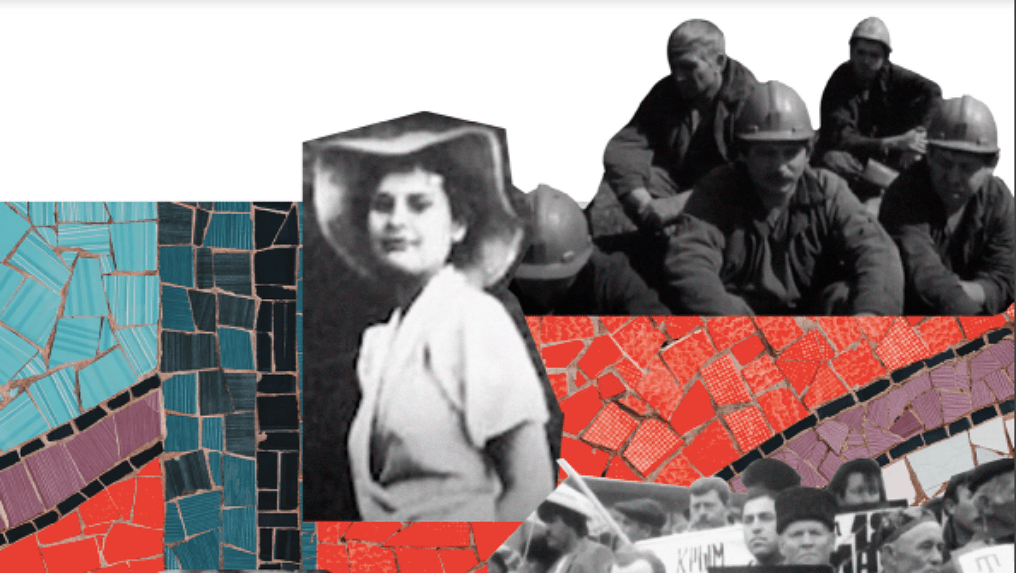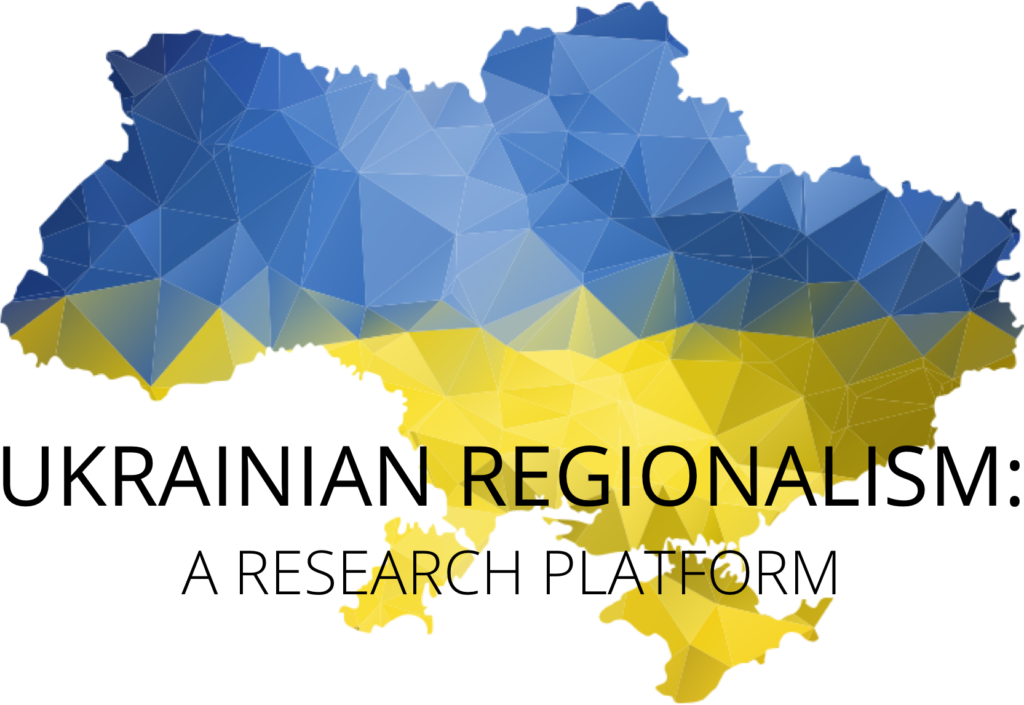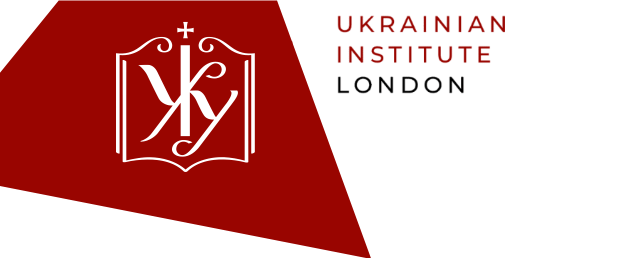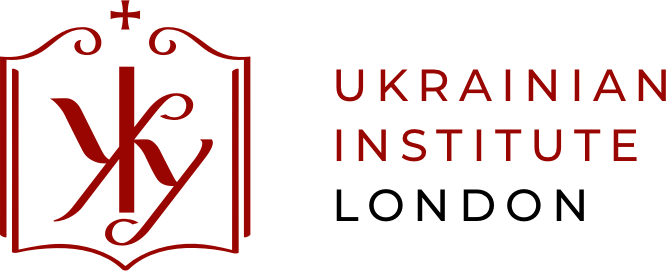Ukrainian society is much more pluralistic and complex than political discourse portrays it to be.

AUTHOR
James Bolton-Jones, Master’s student in Russian and Post-Soviet Politics at UCL School of Slavonic and East European Studies and Graduate of the Ukrainian Studies Programme at the University of Cambridge.
Ukraine is all too often portrayed as a country riven by division, linguistically, historically and ethnically. Last week’s event at the Ukrainian Institute London brought together several studies that shatter such simplistic and misleading characterisations.
As moderator Ursula Woolley mused, the day of the event, 14 October, was Defender of Ukraine Day, a state holiday initiated in 2015 in response to Russian aggression in Ukraine’s East which seeks to divide Ukraine geographically and sow internal division. An appropriate time, then, to talk of the common ground and shared values that unite Ukrainians.
Three experts in sociology and media production featured in this discussion: Peter Pomerantsev, director of the Arena Research Initiative at Johns Hopkins University and the LSE, which recently published the report ‘From Memory Wars to a Common Future: Overcoming Polarisation in Ukraine’; Anna Chebotarova coordinator of the initiative ‘Ukrainian Regionalism: a Research Platform’; and Vira Kostenko-Kuznetsova, a media expert who works with the Ukraine Confidence Building Initiative supported by USAID/OTI.
The Arena initiative
Pomerantsev began by discussing the Arena Initiative, which he runs with historian Anne Applebaum. With the aim of investigating how democratic discourse can be achieved in a polarised age in which disinformation is rife and facts fray, the Initiative has worked on projects in Hungary, Italy and Ukraine. The project in Ukraine focussed on history – a fraught, contested and weaponised subject in Ukraine. Yet during focus groups it became apparent that people on both sides of these ‘memory wars’ had similar worldviews and aspirations. They talked of shared traumas, such as Chornobyl, and a shared pride in their resilience in overcoming them. The right to security was also highly valued by all.
People on both sides of these ‘memory wars’ had similar worldviews and aspirations.
Following the focus groups and survey work, the initiative created short films in collaboration with Hromadske, an independent media outlet. The reaction of the project’s participants to these films was then gauged, with the researchers finding that ‘bottom-up’ content with ordinary people telling their own stories received much higher levels of trust than ‘top-down’ content where history is explained by a presenter. There is a problem with claiming ‘the right version of history’, said Pomerantsev, and stories about ordinary people are a much better way of explaining complex and morally ambiguous situations.
The Ukraine Confidence Building Initiative
The Ukraine Confidence Building Initiative which Kostenko-Kuznetsova works on is similarly focussed on media consumption. During focus groups it became clear that Ukrainians are highly media literate, aware of who owns which TV channel and understanding why certain narratives are pushed. The Ukraine Confidence Building Initiative seeks to support projects in Ukraine’s creative industries that bring people together. One such project was historical drama series I Budut’ Lyudy (There Will Be Humans) which, like the short films created by the Arena Initiative, is a history from the bottom up, focussing on one family as it tries to navigate the complexities of Soviet Ukraine.
Ukrainian Regionalism: a research platform
Next, Chebotarova discussed another ground-breaking project which, taking an interdisciplinary approach, seeks to give nuance to the east/west dichotomy by which Ukraine is so frequently and erroneously characterised. Chebotarova highlighted the importance of nuanced analysis of sociological data: on a macro level, survey results suggest an east- west divide, yet when analysed at the level of oblasts, the picture is much more kaleidoscopic with no clear regional divides. Because the project was based on three surveys, taken in 2013, 2014 and 2017, it records data from before and during the period of Russian aggression in Ukraine’s East.

Interestingly, there were no significant separatist tendencies in 2013 and civic identity was strong even before the conflict, Chebotarova said. Since 2013, the project has noted a growing sense of what Chebotarova called euro-optimism, which has spread from Ukraine’s centre and out into other regions, while desire for a closer union with Russia has significantly decreased. The project has also found a growing consensus that Ukrainian should be the only state language whilst at the same time finding an increasingly positive attitude towards Russian/Ukrainian bilingualism.
Ukrainian society is much more pluralistic and complex than political discourse portrays it to be, and a geographical approach to Ukrainian regionalism overlooks myriad complexities.
The research platform’s conclusions, Chebotarova explained, were that Ukrainian society is much more pluralistic and complex than political discourse portrays it to be, and a geographical approach to Ukrainian regionalism overlooks myriad complexities. A cultural approach to this issue would be a better way to go, said Chebotarova.
Does historical memory still matter?
Playing devil’s advocate, moderator Woolley recalled President Zelenskyy’s New Year’s Day speech in which he said words to the effect that historical memory was no longer an issue in Ukraine. Did the speakers agree?
In a word, no.
As long as there is still conflict in the east and Crimea remains under occupation it would still be an issue, Chebotarova said. Historical memory is weaponised by both the Russian the Ukrainian sides. But as the initiatives each speaker has worked on show: “scholars and activists can do a lot”.
Ukraine needs to learn how to let different interpretations of history live side by side. Like Ukraine’s history, its people hold these huge contradictions within themselves.
Pomerantsev added that Ukraine needs to learn how to let different interpretations of history live side by side. Like Ukraine’s history, its people hold these huge contradictions within themselves. But they need to establish what from the past they do not want to repeat, and what they want to take with them into the future. History, Pomerantsev said, should be used to create a discourse about the future direction of Ukraine.
Watch the full event recording on our YouTube channel.



